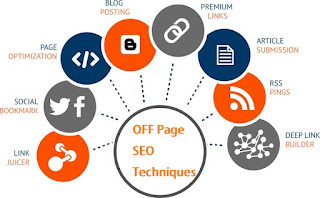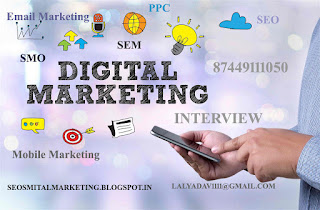Link building is most important part of off page SEO. It is increasing website DA, PA,PR in website.
Ultimate Guide to Off-Page SEO
In the ever-evolving world of digital marketing, mastering off-page SEO is crucial for enhancing your website's visibility and authority on the internet. Off-page SEO involves optimizing factors outside your website to improve its ranking on search engine results pages (SERPs). In this comprehensive guide, we'll delve into the intricacies of off-page SEO, providing you with actionable insights to boost your online presence effectively.
Table of Contents
Understanding Off-Page SEO
What is Off-Page SEO?
Why is Off-Page SEO Important?
Link Building: The Backbone of Off-Page SEO
Quality vs. Quantity: The Link Building Dilemma
Diverse Link Sources
Anchor Text Optimization
Social Signals and Their Impact
Leveraging Social Media Platforms
The Role of Social Bookmarking
Content Marketing in Off-Page SEO
Guest Blogging: A Powerful Strategy
Infographics and Visual Content
Video Marketing
Online Reputation Management
Building a Trustworthy Online Brand
Handling Negative Reviews
Local SEO and Off-Page Optimization
Importance of Local Citations
Google My Business Optimization
Influencer Outreach
Collaborating with Influencers
Measuring Influencer Marketing Success
Technical SEO and Its Off-Page Implications
Mobile Optimization
Website Speed and Performance
Analyzing Off-Page SEO Success
Key Metrics and Tools
Adapting to Algorithm Changes
Ethical Considerations in Off-Page SEO
Avoiding Black Hat Techniques
The Long-Term Benefits of Ethical SEO
Case Studies: Real-Life Off-Page Success Stories
Learning from Successful Campaigns
Tips for International Off-Page SEO
Expanding Globally
Multilingual SEO Considerations
Voice Search and Off-Page SEO
Adapting to the Voice Search Revolution
Schema Markup and Voice SEO
Future Trends in Off-Page SEO
The Role of AI and Machine Learning
Emerging Technologies
Conclusion
Mastering Off-Page SEO: Your Path to Online Dominance
Understanding Off-Page SEO
What is Off-Page SEO?
Off-Page SEO refers to all the activities and strategies undertaken outside of your website to improve its search engine ranking. It involves building a positive online reputation, earning high-quality backlinks, and increasing your website's authority.
Why is Off-Page SEO Important?
Off-Page SEO is crucial because it signals to search engines that your website is trustworthy and authoritative. When other reputable websites link to yours, it boosts your credibility and helps improve your search rankings.
Link Building: The Backbone of Off-Page SEO
Quality vs. Quantity: The Link Building Dilemma
In the world of link building, quality trumps quantity. Focus on acquiring links from authoritative websites in your niche, as these carry more weight in search engine algorithms.
Diverse Link Sources
Diversify your link sources to reduce reliance on a single platform. Consider guest posting, influencer collaborations, and mentions in reputable publications.
Anchor Text Optimization
Choose your anchor text carefully when building links. It should be relevant to the linked page and provide context to both users and search engines.
Social Signals and Their Impact
Leveraging Social Media Platforms
Maintain an active presence on social media platforms. Engage with your audience, share valuable content, and encourage social sharing to increase your website's visibility.
The Role of Social Bookmarking
Platforms like Reddit and StumbleUpon can drive significant traffic to your website. Share your content strategically on these platforms to reach a broader audience.
Content Marketing in Off-Page SEO
Guest Blogging: A Powerful Strategy
Guest posting on authoritative websites in your industry can help you build valuable backlinks and establish your expertise.
Infographics and Visual Content
Visual content is highly shareable. Create infographics, videos, and images that resonate with your target audience and encourage sharing.
Video Marketing
Video content is on the rise. Utilize platforms like YouTube to share informative videos related to your industry.
Online Reputation Management
Building a Trustworthy Online Brand
Maintain a positive online reputation by addressing customer concerns promptly and providing excellent service.
Handling Negative Reviews
Turn negative feedback into an opportunity for improvement. Respond professionally and offer solutions to resolve issues.
Local SEO and Off-Page Optimization
Importance of Local Citations
Ensure your business information is consistent across online directories to improve your local search rankings.
Google My Business Optimization
Claim and optimize your Google My Business listing to enhance your local visibility on Google Maps and Search.
Influencer Outreach
Collaborating with Influencers
Partner with influencers in your niche to reach a broader audience and gain valuable endorsements.
Measuring Influencer Marketing Success
Track key performance metrics to evaluate the effectiveness of your influencer marketing campaigns.
Technical SEO and Its Off-Page Implications
Mobile Optimization
Optimize your website for mobile devices to provide a seamless user experience.
Website Speed and Performance
A fast-loading website improves user satisfaction and can positively impact your search rankings.
Analyzing Off-Page SEO Success
Key Metrics and Tools
Use tools like Google Analytics and Search Console to monitor your website's performance and track the success of your off-page SEO efforts.
Adapting to Algorithm Changes
Stay informed about search engine algorithm updates and adjust your strategies accordingly to maintain your ranking.
Ethical Considerations in Off-Page SEO
Avoiding Black Hat Techniques
Black hat SEO tactics can result in penalties from search engines. Stick to ethical practices for long-term success.
The Long-Term Benefits of Ethical SEO
Ethical SEO may take longer to yield results, but it builds a sustainable online presence that stands the test of time.
Case Studies: Real-Life Off-Page Success Stories
Learn from the experiences of others by examining successful off-page SEO campaigns and strategies.
Tips for International Off-Page SEO
Expand your reach globally by implementing international off-page SEO strategies and considering multilingual SEO.
Voice Search and Off-Page SEO
Prepare your website for the growing trend of voice search by implementing schema markup and optimizing for voice queries.
Future Trends in Off-Page SEO
Explore upcoming trends in off-page SEO, including the role of AI, machine learning, and emerging technologies.
Conclusion
Mastering Off-Page SEO: Your Path to Online Dominance
FAQs
How long does it take to see results from off-page SEO?
The timeline for seeing results from off-page SEO can vary, but it typically takes several months to a year to notice significant improvements in search rankings and website traffic.
Is it essential to hire an SEO agency for off-page optimization?
While hiring an SEO agency can be beneficial, it's possible to implement off-page SEO strategies independently with the right knowledge and resources.
What are some ethical off-page SEO practices?
Ethical off-page SEO practices include earning backlinks naturally, providing valuable content, and engaging with your audience on social media in a genuine way.
Can I use the same content for multiple guest posts?
It's not recommended to use identical content for multiple guest posts, as duplicate content can harm your SEO efforts. Instead, create unique content tailored to each platform.
How can I stay updated on SEO algorithm changes?
Stay informed by following industry news, participating in SEO forums, and regularly checking official search engine blogs for updates and announcements.


